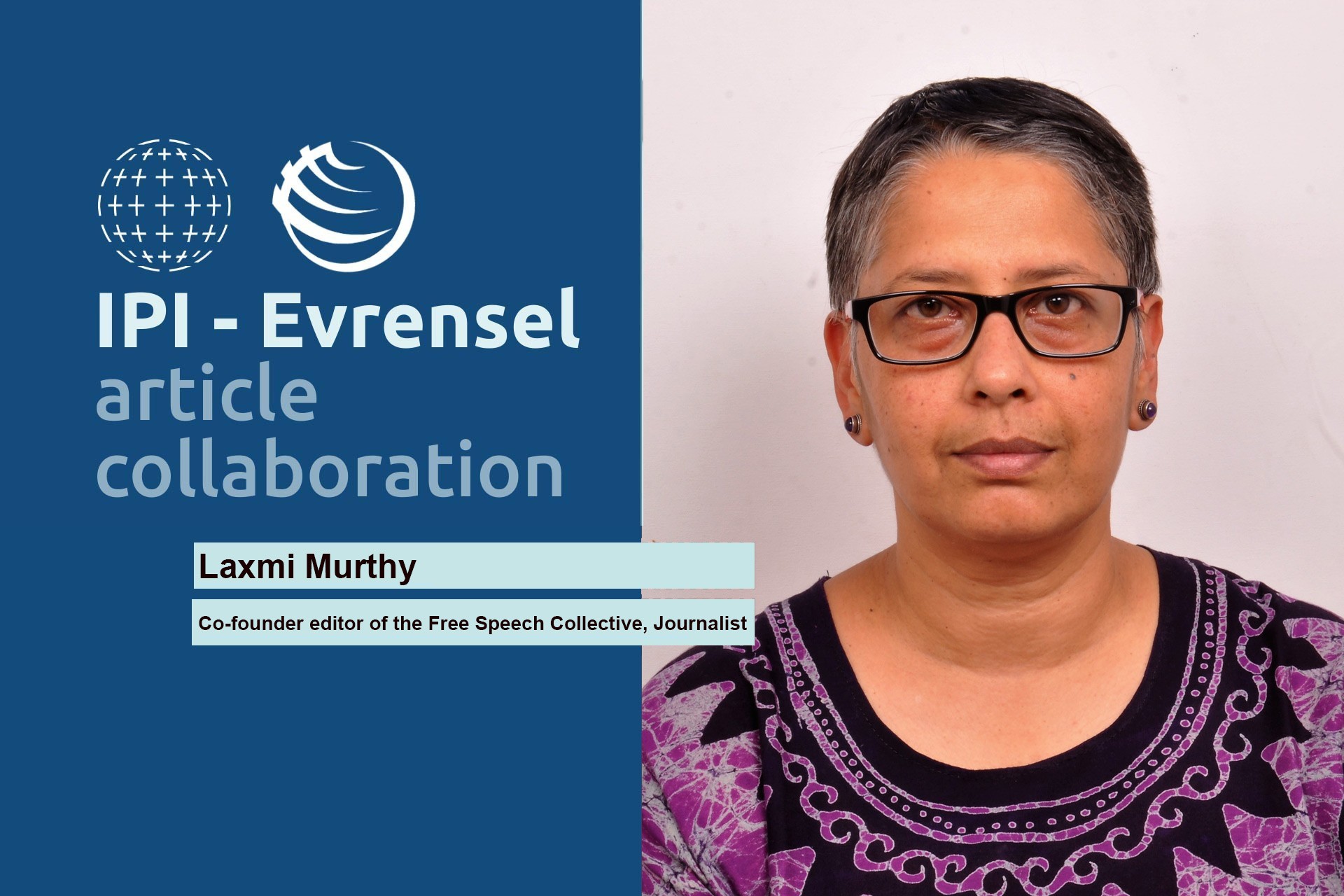Lawfare: Weapon Against the Free Press in India
Over the years, “lawfare”, or harassment through arbitrary use of law has become intrinsic to the government’s arsenal to control the critical media.
 Laxmi Murthy
Laxmi Murthy
By Laxmi Murthy, Co-founder editor of the Free Speech Collective, Journalist
Areeba was just an infant when her father, journalist Aasif Sultan, was arrested. She has met him only a few times, her father always in shackles. On 27 August 2018, Sultan, who lives and works in strife-torn India-administered Kashmir, was detained under the Unlawful Activities Prevention Act (UAPA), for allegedly harbouring militants and promoting insurgency merely for writing about militant leaders.
Attacks, murders and abduction are time-honoured ways to silence journalists in India, and 13 were killed in 2020, according to the India Press Freedom Report 2020, published by the Rights and Risks Analysis group. However, over the years, “lawfare”, or harassment through arbitrary use of law, often implemented through centrally controlled law enforcement agencies like the Enforcement Directorate (ED) and National Investigative Agency (NIA), has become intrinsic to the government’s arsenal to control the critical media.
According to a Free Speech Collective report, in 2020 alone, 67 journalists were "arrested, detained, interrogated or served ‘show-cause’ notices for their professional work". Significantly, most of these journalists worked for non-English media houses, were freelancers or worked for digital media, which continues to be unregulated by labour laws.
The bogey of national security is invoked by a government intolerant of dissent. The archaic sedition law has been used against journalists, environmental campaigners, students and human rights activists. The law penalises anyone who invokes “hatred or contempt” or “disaffection” against the government. This colonial era law was invoked in February 2021 against prominent journalists for their social media posts about the ongoing anti-government protests by farmers. In a case with far-reaching implications, the Supreme Court of India in June 2021 quashed a sedition case against senior journalist Vinod Dua and asserted that every journalist was “entitled to protection” against the lodging of arbitrary cases.
With high caseloads and time-consuming and costly procedures, the process of fighting a case itself becomes punishment. More so when bail is virtually impossible under draconian anti-terror laws, or selectively granted to high-profile journalists but denied to journalists like Siddique Kappan who languishes in jail under the UAPA for merely travelling to a location to report on a rape. Many of these journalists are already in precarious employment and reel under huge financial, emotional and professional costs even as cases drag on for years.
During the Covid-19 pandemic and lockdowns, the government slapped the Disaster Management Act, 2005 (NDMA) on journalists, charging them with spreading “fake news” when they reported on realities on the ground such as stranded migrant workers or scarcity of food. The lockdown also witnessed the unprecedented use of the 124-year-old British era Epidemic Diseases Act against journalists such as the founder of a news portal in the southern Indian state of Tamil Nadu for reporting on corruption in food distribution during the lockdown in April 2020.
Journalists exposing the government’s mishandling of the pandemic were charged with spreading misinformation and booked under the laws that prohibit creating “public alarm” and “criminal intimidation”. Defamation laws were also used to silence journalists exposing the truth. Corporations also used defamation to muzzle journalists investigating corruption and corporate crime.
A law penalising creating enmity between religious groups was also used widely against journalists investigating activities of groups promoting “Hindutva”, or aggressive Hindu nationalism.
The digital space has emerged as a contentious arena for free speech in India, regulated mostly through the Information Technology Act, 2000 and new rules issued in 2021. These rules give the government sweeping powers to censor, order takedowns and block content. DIGIPUB, a consortium of independent digital news sites, called the rules “undemocratic” and challenged them in court. The pushback to arbitrary use of law against the independent media has been steady, with the sharpest weapon on the side of the media: truth.
--
Laxmi Murthy is a journalist based in Bengaluru, India. She is co-founder editor of the Free Speech Collective.


Follow Evrensel